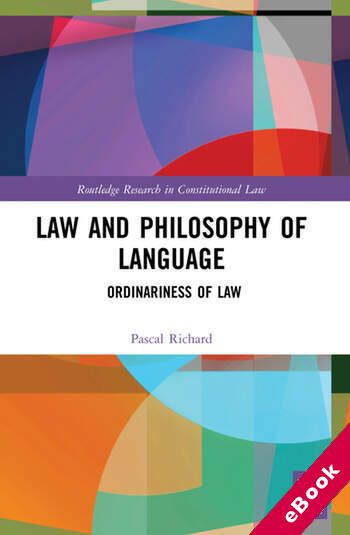
The device(s) you use to access the eBook content must be authorized with an Adobe ID before you download the product otherwise it will fail to register correctly.
For further information see https://www.wildy.com/ebook-formats
Once the order is confirmed an automated e-mail will be sent to you to allow you to download the eBook.
All eBooks are supplied firm sale and cannot be returned. If you believe there is a fault with your eBook then contact us on ebooks@wildy.com and we will help in resolving the issue. This does not affect your statutory rights.
Academic legal production, when it focuses on the study of law, generally grasps this concept on the basis of a reference to positive law and its practice.
This book differs clearly from these analyses and integrates the legal approach into the philosophy of normative language, philosophical realism and pragmatism. The aim is not only to place the examination of law in the immanence of its practice, but also to take note of the fact that legal enunciation must be taken seriously. In order to arrive at this analysis, it is necessary to go beyond traditional perspectives and to base reflection on an investigation of the conditions for enunciating law in our democracies. This analysis thus offers a renewal of the ethics inherent in the action of jurists and an original reflection on the role of certain legal tools such as concepts, categories, or "provisions". In this sense, the work nourishes its originality not only by the transversality of its approach, but also by the will to situate legal thought in concrete forms of its implementation.
The book will be essential reading for academics working in the areas of legal theory, legal philosophy and constitutional theory.